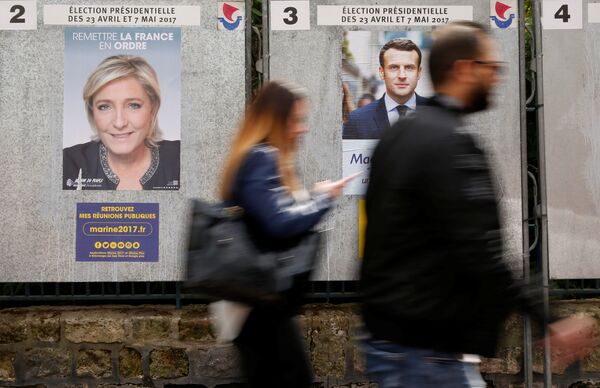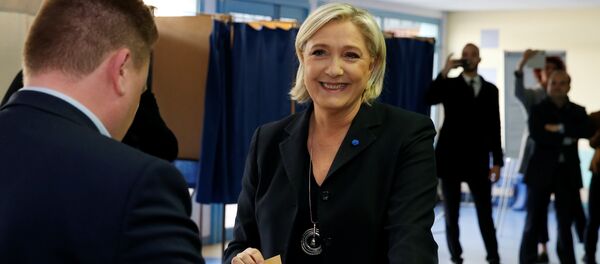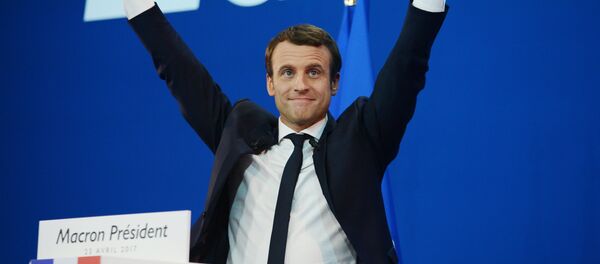Leading French media and US television network CNN have picked up on a sensational new 'discovery' by Tokyo-based cybersecurity firm Trend Micro, which found that unknown hackers had set up several fake web domain names similar to those of the Macron campaign, in an effort to trick Macron campaign workers into compromising their email accounts using a trick known as phishing.
Macron, a former Minister of Economy and investment banker at Rothschild & Cie Banque, won the first round of France's presidential race on Sunday, receiving 24.01% of the vote. He will face off against Marine Le Pen, leader of the National Front party, who received 21.3% of the vote, in the second and final round May 7.

Trend Micro analyst Feike Hacquebord told CNN that while he could not confirm that the hackers were Russian, the hacking did have a 'similar M.O.' to that of the hack of the Democratic National Committee, which US mainstream media and some US intelligence officials have claimed were tied to Russian intelligence.
US officials, pundits and media analysts have yet to provide any credible evidence backing their claim that Russia was responsible for the DNC hack. WikiLeaks, the organization which leaked the hacked information, has also denied that their source was affiliated with Russia.
According to the French edition of 20 Minutes, the hackers targeting Macron's En Marche! Party were presumably affiliated with the Fancy Bears' hack team, a group which private investigators working for the Hillary Clinton campaign have accused of being connected to Russian intelligence.
Furthermore, last month, WikiLeaks revealed the existence of a CIA anti-digital forensics tool used by the agency to disguise CIA hacks with traces of Russian, Chinese and Arabic in code to divert attention for their own hacks onto foreign actors.
RELEASE: CIA Vault 7 part 3 "Marble" https://t.co/M5NBFlXRu4 #Vault7 pic.twitter.com/HFyEf26FHK
— WikiLeaks (@wikileaks) 31 марта 2017 г.
Commenting on the En Marche! servers story in an analytical piece for RIA Novosti, columnist Igor Gashkov emphasized that given that the fact that intelligence services now have the advanced capability of mimicking one another, it's unlikely that the true culprit, if there was one, will ever be found.
Furthermore, Gashkov recalled that Macron's party is saying that "not a single email address was cracked by the hackers. In other words, there was no hacking, but only accusations."
Earlier this year, WikiLeaks founder Julian Assange told Russia's Izvestia newspaper that there may be evidence in Hillary Clinton's leaked emails that Macron had engaged in shady correspondence with the former secretary of state, traveling to the US before announcing his campaign. This has led to allegations from French politicians that Macron was a 'US agent' lobbying the interests of the US financial market in France.
In any case, Assange has also confirmed that the information which may be contained in the Clinton emails dates back to 2012, while she was still secretary of state. At the time, Macron was still a relatively minor political figure, and it remains unclear in what capacity he may have been discussed in Clinton's correspondence.
This week's accusations aren't the first time En Marche! has accused Russian hackers of interference. In February, the campaign claimed that a hack registered on Ukrainian territory caused the En Marche! site to crash temporarily. As expected, Russia was blamed for that attack, too.






